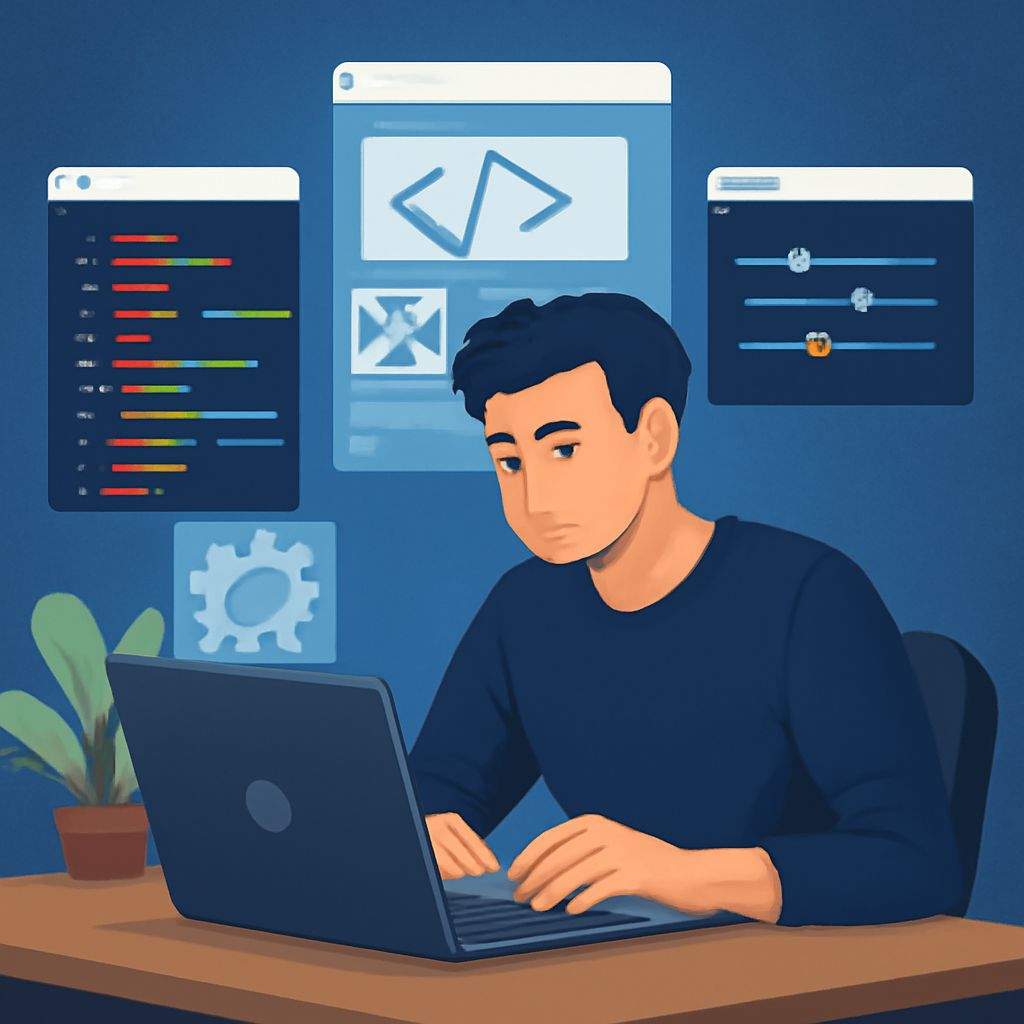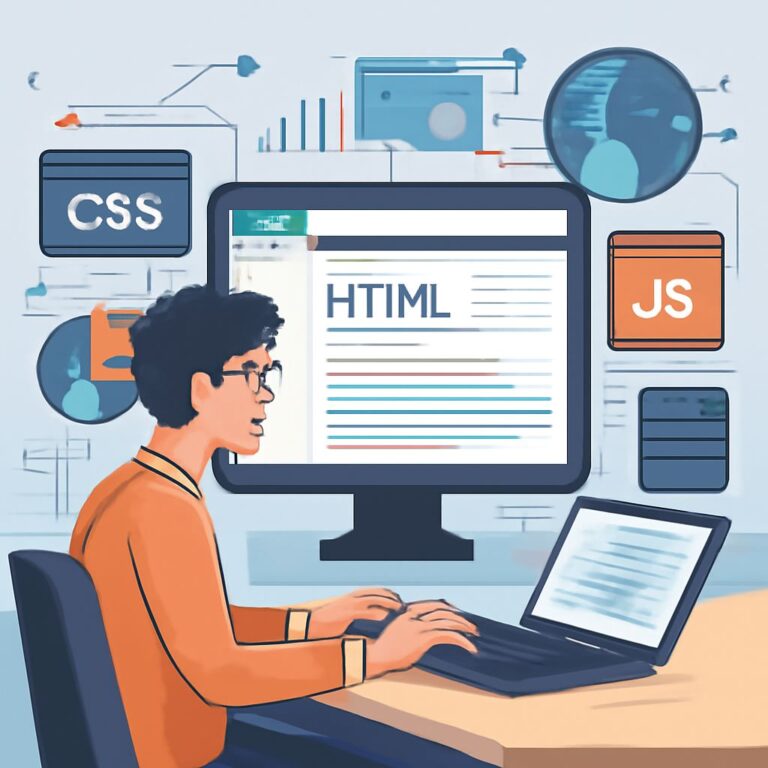Table of Contents
Getting Started with Web Development
Web development is a dynamic field that requires a deep understanding of both technical and creative skills. To get started, one should focus on mastering the foundational programming languages such as HTML, CSS, and JavaScript. These languages form the backbone of most web projects and will serve as the launching pad for more complex learning. Understanding the Document Object Model (DOM) and how these web technologies interact is essential for creating interactive web pages.
Once you’re comfortable with the basics, it’s beneficial to explore the vast ecosystem of frameworks and libraries. React and Angular are popular choices for front-end development, offering a structured way to create efficient, modular applications. On the other hand, Node.js opens many possibilities on the server-side by allowing developers to use JavaScript across the entire stack. Embracing these tools will streamline your development process and make your projects more robust, enabling you to create scalable and maintainable applications that can handle increased user demands.
- Learn one language at a time to avoid feeling overwhelmed. Tackling too much at once can lead to confusion and burnout.
- Participate in coding bootcamps or online courses to reinforce your understanding. These structured learning environments can accelerate your growth and provide mentorship opportunities.
- Regularly practice coding adjustments to cement your learning. Consistency is key, and even small daily practice sessions can yield significant improvements over time.
Diving Deeper: Best Practices from the Pros
When you’re ready to deepen your understanding, learning best practices is crucial. Seasoned developers suggest writing clean, readable code that’s easy for others to understand and maintain. Employing version control systems like Git to manage changes effectively is also critical, particularly when working in team settings or contributing to long-term projects. Understand that collaboration is key, so developing good habits early in communication and teamwork will significantly benefit your career, enhancing both productivity and project quality.
Testing your code is another critical aspect, ensuring that functionality remains intact as projects grow. Tools like Jest and Mocha help automate this process, providing immediate feedback on code behavior. By setting aside time for rigorous testing, you can deliver high-quality, reliable applications that meet user expectations and reduce post-deployment issues.
- Write tests for your code to ensure quality and minimize errors. Incorporating test-driven development (TDD) practices can further reduce bugs and help clarify requirements early in the development cycle.
- Regularly update your skills by attending webinars and tech meetups. Staying engaged with the broader tech community can expose you to emerging trends and innovative practices.
- Collaborate on open-source projects to gain real-world experience. These projects offer unique learning opportunities and can significantly enhance your portfolio, showcasing your abilities to potential employers.
Maintaining Passion and Creativity
In a field that’s constantly evolving, keeping your passion for web development alive is essential. Pursue projects that challenge and excite you, and don’t shy away from experimenting with new ideas. Creativity is at the heart of development, and stepping out of your comfort zone will lead to innovation and growth. Whether it’s developing a new plugin, creating a unique user interface, or experimenting with cutting-edge APIs, these creative endeavors can keep you motivated and engaged.
Find mentors who inspire you and can provide guidance when needed. Similarly, mentoring others can be equally rewarding and can reinforce your own knowledge. Sharing knowledge not only solidifies your understanding but also builds a supportive community that fosters mutual growth and learning.
- Engage in side projects or hackathons to stimulate creativity. These events are fertile ground for innovation, allowing you to test ideas in a fast-paced, collaborative environment.
- Follow industry leaders on social media to stay inspired. Engaging with thought leaders can offer fresh perspectives and keep you informed about industry shifts and new opportunities.
- Set personal goals to track progress and celebrate milestones. Regular reflections on achievements and setting new targets can help maintain focus and motivation over the long term.
FAQ
What is the best way to start learning web development?
Begin with the basics like HTML, CSS, and JavaScript, and then move on to frameworks and libraries as you become more comfortable. Consider leveraging interactive platforms like CodePen or JSFiddle to experiment in real-time, and seek out community forums such as Stack Overflow for support.
How can I improve my coding skills?
Regular practice, engaging in coding challenges, and working on real projects help enhance your coding abilities. Collaboration and feedback from peers are also invaluable, enabling you to refine your approach and learn faster. Websites like LeetCode and HackerRank offer challenges that can help improve problem-solving skills and coding proficiency.
Should I specialize in front-end or back-end development?
It depends on your interests and strengths. Some developers choose to specialize, finding joy in refining their expertise in either client-side (front-end) or server-side (back-end) technologies. Others become full-stack developers to handle both aspects, offering flexibility and a well-rounded skill set that numerous tech companies highly value. Assessing what excites you most and aligns with your career goals can guide this decision.
In conclusion, mastering web development requires a combination of continuous learning, embracing new opportunities, and applying best practices to deliver innovative solutions. Striving for excellence and remaining adaptable will allow you to excel in an ever-evolving industry.









